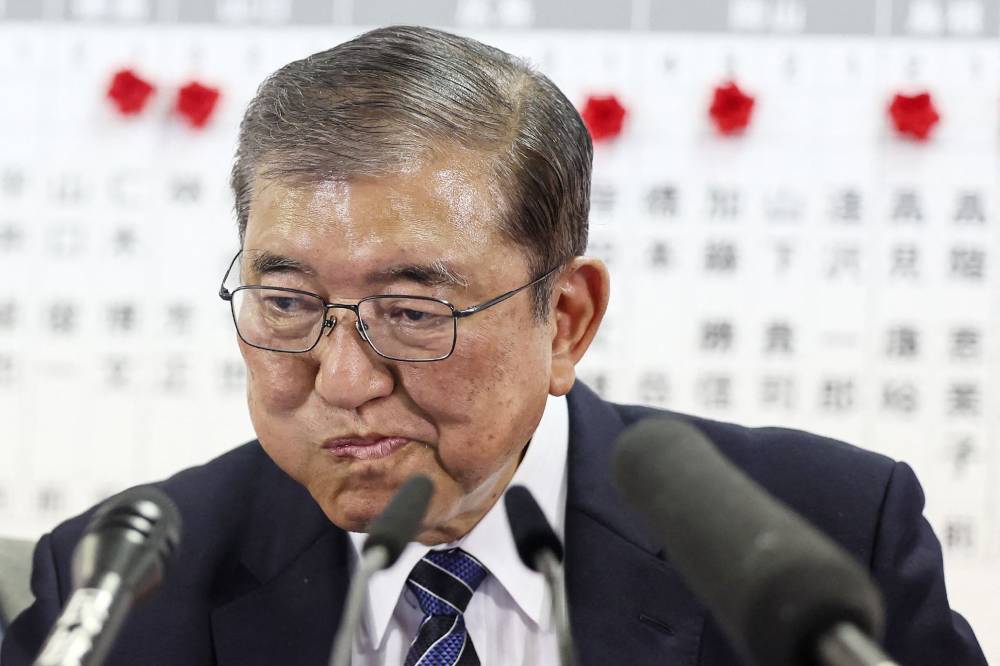Japan's ruling party loses majority, leaving PM Ishiba in challenging spot
Despite the setback, Ishiba expressed his commitment to forming a new government led by his party.

TOKYO - Japan's ruling coalition lost its majority in the House of Representatives in Sunday’s election, putting pressure on Prime Minister Shigeru Ishiba to seek outside support for a stable government.
Despite the setback, Ishiba expressed his commitment to forming a new government led by his party.
The opposition, made up of both liberal and conservative groups, also faces challenges in forming a coalition due to differing policy goals, Kyodo News Agency reported.
The disappointing results highlight growing distrust toward the ruling Liberal Democratic Party (LDP), driven by a slush funds scandal, marking a shift in support since it regained power in 2012.
Ishiba, looking somber, called the results "tough."
"We were far from gaining the public's trust" over the slush funds scandal, Ishiba said, though he remains hopeful about continuing the coalition’s agenda.
His decision to dissolve the lower house just eight days after taking office on Oct 1 and call an election backfired.
The LDP’s troubles intensified late in the campaign when it was revealed that 20 million yen (US$132,000) was allocated to local chapters led by unendorsed candidates embroiled in scandal.
Opposition leaders quickly condemned the ruling party for secretly supporting these candidates.
Komeito chief Keiichi Ishii, who assumed his role only a month ago, lost his seat, marking the first defeat for a Komeito leader since 2009. The party, backed by the lay-Buddhist Soka Gakkai organisation, saw its seats drop from 32 to around 22.
Additionally, Farm Minister Yasuhiro Ozato and Justice Minister Hideki Makihara lost their seats to opposition candidates.
The CDPJ made significant gains, securing over 140 seats, up from 98.
"Voters decided which party would best push for reforms, and we gained support because of that," said CDPJ chief Yoshihiko Noda.
Observers suggest the LDP may reinstate members who were denied endorsements over income reporting issues.
Still, prominent former education minister Hakubun Shimomura and roughly half of the 10 candidates denied endorsements lost their seats.
All candidates forced to run independently had strong ties with former Prime Minister Shinzo Abe, who influenced the LDP even after stepping down in 2020.
The ruling coalition may consider seeking support from the Democratic Party for the People, which increased its seats from seven to over 30. However, its leader, Yuichiro Tamaki, has refused to join the coalition. The Japan Innovation Party is also hesitant to collaborate.
Voter turnout was estimated at 53.81 per cent, slightly lower than the 2021 election, and likely the third-lowest in postwar history. A record 55 female lawmakers were elected.
In this election, each voter cast two ballots -- one for a candidate in a single-seat district and another for a party in proportional representation. Final results are expected by early Monday.
The outcome presents a major hurdle for Ishiba, who aims to rebuild the LDP ahead of the House of Councillors election next summer.
Analysts believe this result makes it unlikely for Ishiba to achieve his key goal of proposing constitutional reforms in parliament, which would require a two-thirds majority before going to a national referendum. - BERNAMA-KYODO










